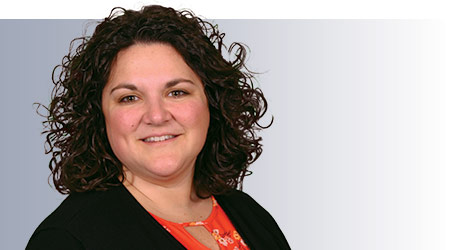
In Wisconsin, COVID-19 cases rage on, forcing our staff to continue working from home. It has been eight months, but unlike some, I miss going into the office. I miss seeing people and collaborating with my team. Video conferencing just isn't the same.
As much as I miss it, though, there are perks to working from home. The commute is fantastic. I have full control over the temperature. I can sit right next to a window or step outside for some fresh air. I also don't have to worry about touchpoints, hotspots, odors, pests or the countless other hot button topics that result in office complaints. There's also never a line in the restroom.
Why is it that the restroom is the target of so many complaints? Whether I'm in the office or at home, it's the room I spend the least amount of time in. Yet, according to our survey, it generates almost half (46 percent) of all building occupant complaints. I'd argue, too, that most of those complaints are infractions people make themselves.
The reality is, the restrooms in most offices, schools and other public places are cleaner than any given person's home. I know I certainly don't clean my mirrors, toilets, sinks and floors daily, or even every other day for that matter. Yet these surfaces are judged regularly in public spaces, sometimes absurdly.
One survey respondent recalled receiving a complaint about the direction of the toilet paper. I know this is a hot button for some people, but to be so bold to demand staff come flip the roll immediately is a bit much.
Although restrooms generate the bulk of complaints, building occupants seem happy to spread judgement around. Floors, breakrooms and entrances receive constant scrutiny, and even cleaning staff aren't safe. Responsiveness, appearance and attitude of custodial workers is criticized, which can create animosity.
Fortunately, managers have had success in thwarting gripes, mostly through some level of education. According to our cover story, departments that maintain open and honest communication with building occupants, as well as ongoing training with frontline cleaning staff see fewer complaints. Those who anticipate trends, post and fulfill cleaning protocols, and increase visibility of staff also tend to spend far less time responding to occupant concerns.
Communication can work wonders — it certainly has in my home office. My husband knows right where to find the cleaning supplies.

 The Down and Dirty on Cleaning in Virus Season
The Down and Dirty on Cleaning in Virus Season How Surfactant Use is Expanding in Commercial Cleaning
How Surfactant Use is Expanding in Commercial Cleaning Operational Excellence Series 2025: Better Budgeting
Operational Excellence Series 2025: Better Budgeting
